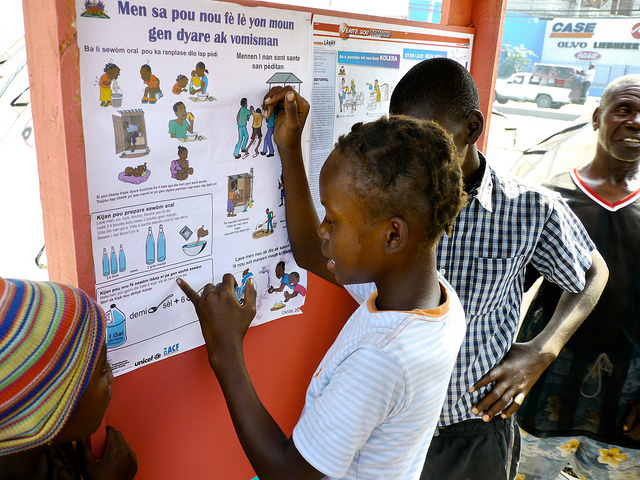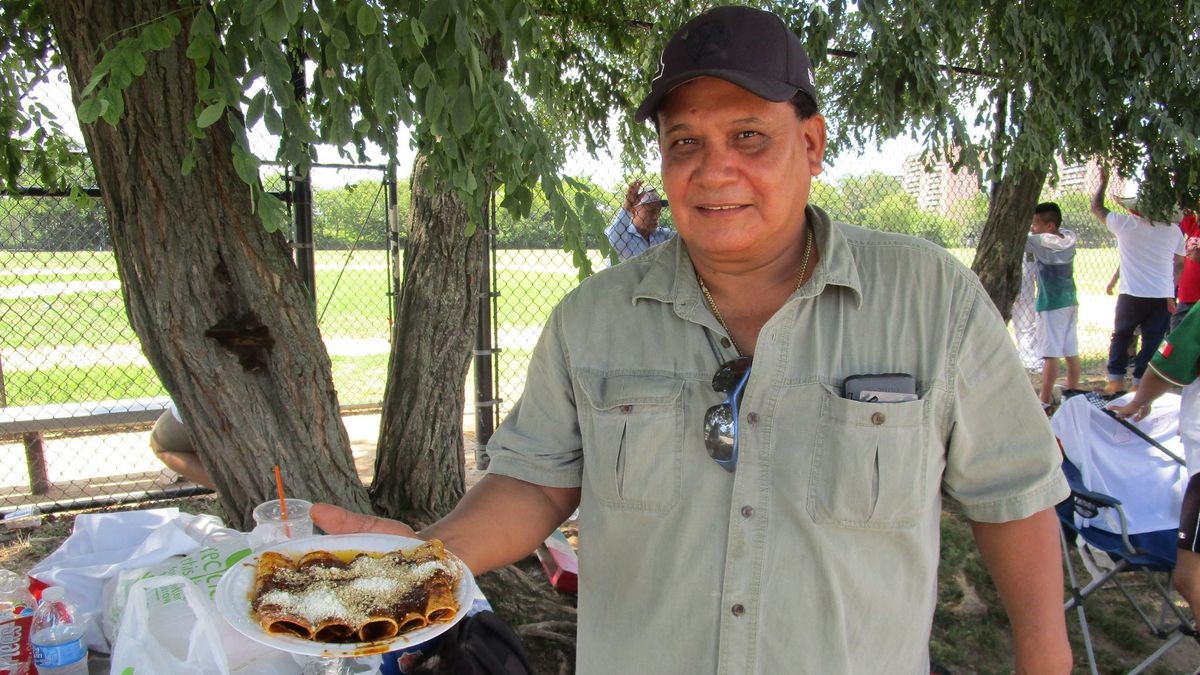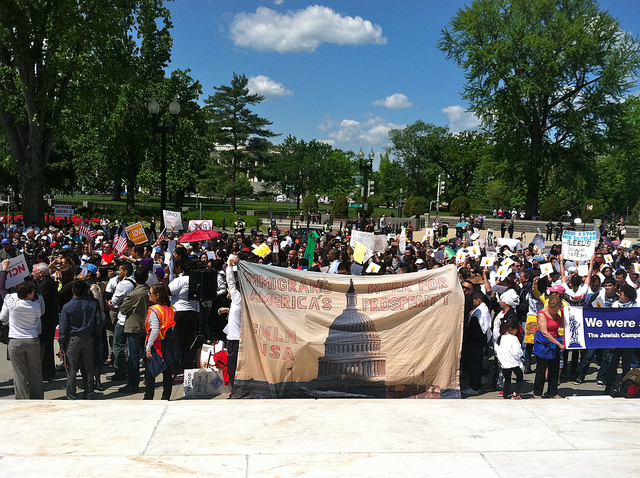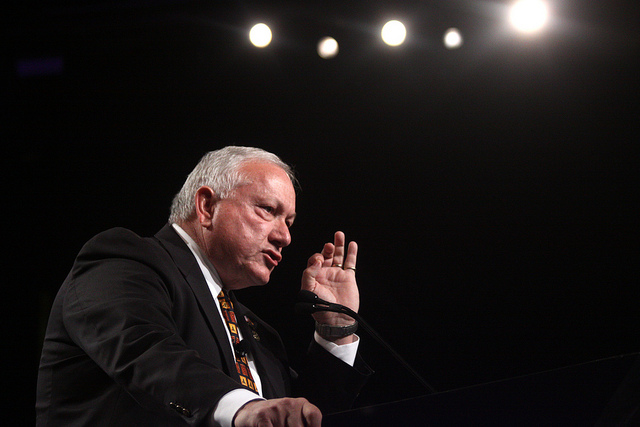
Dispatches, Haiti, United States
Haiti Must Build A Strong State To Recover From Earthquake, Experts Say; Call For Haitian “Marshall Plan”
January 29, 2010 By Staff
NEW YORK — A Port-au-Prince school collapsed on a sunny day in Nov. 2008, leaving 80 children dead. The school, perched precariously on a hillside, had been built without a permit and with watered down concrete, its students crammed into overcrowded classrooms to increase tuition profits.
“Where was the state?” asked William O’Neill, a lawyer for Social Science Research Council, at a conference at New York University (NYU) Tuesday night.
With much of the world wondering how to treat Haiti’s sick and reconstruct its fallen buildings after a devastating earthquake on Jan. 12, academics and aid workers at the conference pointed to another Haitian entity that needs rebuilding—the government.
The modern Haitian government has not enjoyed a very positive public image.
While Haiti is seen as a “beacon of freedom” to people in the formerly colonized world because its slaves won their independence from the French, the contemporary Haitian state is better known for corruption and violence, according to historical anthropologist Michael Ralph.
“Haiti’s tragedy is historical as well as it is natural,” said J. Michael Dash, a French professor at NYU and Caribbean Community (CARICOM) representative, adding, “What the earthquake revealed is the actual nightmare reality the people of Haiti live in.”
Since Haiti declared independence from France in 1804, foreign countries have fluctuated between ignoring the country and intervening in its affairs. In the twentieth century, the United States has been the most prevalent foreign force in Haiti, occupying the country from 1915 to 1934 and again in 1994 after the ouster of Haitian president Jean-Bertrand Aristide.
Some are skeptical about the United States intentions during the 1994 operation, as they claim the mission was less about restoring Aristide to power and more about controlling immigration.
“It was not about upholding democracy, it was about stemming the flow of refugees,” Dash said.
Haiti has transitioned from a “predatory state” following the U.S. occupation in 1915, to a “neocolonial” state in more recent years, according to Dash.
Unable to turn to the atrophied government for assistance, common Haitians historically have fended for themselves in their search for education, health care, food and water. With a flimsy infrastructure resulting from lack of investment and disregard for zoning laws and building codes, it was no surprise that Haiti suffered so much from the 7.0 magnitude earthquake and the many aftershocks that followed.
This political upheaval and poverty lead to underdevelopment and the ineffectual state government that runs Haiti today, said Bill O’Neill, a lawyer for the Social Science Research Council, while displaying photos of the 2008 school collapse.
“Haiti is not a failed state, it is a phantom state,” he said.
The lack of governmental oversight in areas such as building codes, transportation and water are the main reasons why the earthquake caused as much damage as it did. Earthquake-prone California experiences recurrent earthquakes, but its superior infrastructure limits the damage, according to O’Neill.
“This was a disaster waiting to happen,” he said.
Haiti’s current challenge is to build a state that “actually serves the people” by guaranteeing economic, social and cultural rights, including “the right to food, the right to shelter, the right to adequate health care and clean water,” O’Neill said.
Leslie King of Partners In Health, an organization that works with Haitians to provide charitable medical services, said the group received donations surpassing its annual operating budget of $25 million within one week of the earthquake.
But with over 10,000 charitable organizations operating in Haiti before the earthquake—often in isolation from one another—King emphasized the need to increase Haiti’s state capacity. “We really feel it’s important to strengthen the government,” King said.
They could clearly use the help. With the Presidential Palace and many government ministries in ruins, Haitian President René Préval now runs the government out of a Port-Au-Prince police station, according to a Jan. 20 report from the Los Angeles Times.
O’Neill also said 70 percent of Port-au-Prince’s police leadership died in the earthquake.
The United States government has spent $379 million in aid to Haiti since the earthquake, but less than one cent per dollar goes to the Haitian government, according to a review of public records published Jan. 27 by the Associated Press.
To aid Haiti in the relief effort the International Monetary Fund offered an interest-free emergency loan of $100,000 last week, according to a Jan. 20 press release.
Ralph criticized the IMF for offering a loan instead of a grant, though the press relase said it hopes to cancel Haiti’s entire debt to the Fund in the future.
“Haiti needs something as big, bold and ambitious as the Marshall Plan,” said Greg Beckett, an assistant professor in the social sciences at the University of Chicago, referring to the United States plan to rebuild Western Europe after World War II. “[Haiti] is unprepared to meet the daily needs of its citizens.”
- Roque Planas, Andrew O’Reilly and Mari Hayman contributed reporting to this article.
- Image: Adam Rogers of the United Nations Development Program






4 Comments
[…] development and recovery from the earthquake, a group of academics and aid workers recently said at a conference a New York […]
[…] Latin American News Dispatch – With much of the world wondering how to treat Haiti’s sick and reconstruct its fallen buildings after a devastating earthquake on Jan. 12, academics and aid workers at the conference pointed to another Haitian entity that needs rebuilding—the government. […]
[…] new president will also face the intimidating task of building a strong Haitian state. The devastation caused by the natural disaster was facilitated by Haiti’s poor […]
I ought to admit that your site is very interesting. I have spent a lot of my spare time reading your content. Thanks a lot!
Comments are closed.